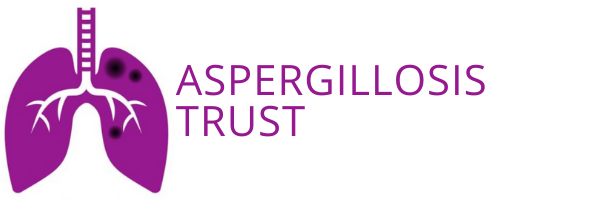An Aspergillosis Diagnosis: fighting for breath and for life
When I listen to patient stories I can hear their fight, their troubles, their sheer will and determination as they battle to prove their illness. But more deafening is the continual failure by the system, silencing of victims, and leaving them with little hope of being heard. I read stories, tributes, obituaries, and forums, longing for a little glimmer of hope. I question science and the healthcare system and think - for all these illnesses, diseases, and rare conditions that one can catch and develop, where on the list does catching a break fit?
I express my deepest gratitude and appreciation to J; an inspirational woman who has lived with a rare disease for nearly 60 years of her life and devotes her time to being a patient advocate as co-founder of the Aspergillosis Trust. Her willingness to share her story speaks volumes about her unwavering commitment and desire to help and support others, educate patients, families and society as well as alleviate the burden felt by sufferers, ensuring they are never walking alone.
Aspergillosis, not to be confused with asperger’s or asbestosis, is a rare and potentially fatal disease affecting the lungs; the organ we are so familiar with after living amidst a pandemic affecting the respiratory system. But there lies the irony; an organ we should know so much about or at the very least be open to learning about, yet when patients I have spoken to tell me their tragic stories and repetitive struggles in being heard, respected, and eventually diagnosed, it is evident that we just don’t know enough.
The Disease
Aspergillosis is caused by Aspergillus species - an airborne fungus. The disease process varies between people and is grouped into three main types: allergic, chronic and invasive aspergillosis (Chabi et al., 2015). A healthy person with no underlying lung disease and a functional immune system can appropriately eliminate the inhaled fungal spores that we are exposed to everyday. However, patients with impaired lung function due to underlying disease processes such as asthma and airway disease, as well as a compromised immunological status become prime targets for the development of pulmonary aspergillosis.
Patient Experiences
The struggle and torment in obtaining a diagnosis is a prevalent theme amongst many people living with aspergillosis. Whilst the emotional toll in pleading your case to what may feel like a brick wall can be tough, patients report there is further heartache in the refusal by health professionals to provide necessary management and treatment. For Ms J, her battle began in the first seven years of her life. It took 11 years to reach the correct diagnosis which came after hospitalisations almost every 3 months as well as a ‘special’ boarding school more suited to care for sick children. Alarmingly, almost 50 years later, this story is profoundly common, that despite so many advancements in technology, increased wealth, and knowledge, it appears very little has changed.
Similarly, Ms R’s experience with aspergillosis began in the late 1970s, living on a damp, dairy farm, suffering from asthma and spending her childhood fighting for breath and combatting chest infections. Many years later, in her adult life she experienced a significant decline in lung function eventually leading to an aspergillosis diagnosis. The relief Ms R felt to finally have an answer and a management trajectory; to have someone listen, care, treat and provide medications that allow her to breathe, live and care for her family. Sounds like a nice end to the story, right? But a change in location; a new town, new hospital, and a new doctor, meant the fight was to start all over again. Ms R, previously on a stable management plan was met with resistance when requesting her regular life-enabling medications, and told it was unlikely for her to have aspergillosis again. Again?! Further decline in health was met with hospital admissions, scans, multiple sputum samples and blood tests and a refusal by healthcare professionals to listen to the patient when she explained she had aspergillosis. For months this continued until the same doctor asked the patient if she had ever had aspergillosis – a disease she attempted to inform him about in her medical history at their first ever meeting.
Many other people who have shared their stories have claimed the same struggles. The constant pleading in between gasps of air or tears, explaining that something just isn’t right and despite the four rounds of alternating amoxycillin and doxycycline, their condition still not improving. For some patients their journey to a diagnosis comes with an incorrect lung cancer diagnosis, and a removal of part of the lung for a misdiagnosed tumour that was in fact a cavity of fungus belonging to aspergillosis.
The Healthcare System
It is evident that the healthcare system worldwide is under enormous strain. We all rely on the healthcare system - on doctors, nurses, healthcare professionals - to fix our problems, write us a script, and somehow make our problems disappear. The majority of healthcare professionals do a remarkable job particularly in the strained system they are forced to work within, and the pressures thrust upon them. Observations made between the UK and Australian health systems commonly report a decrease in the number of General Practitioners (GP), yet an increased demand and need for them (British Medical Association, 2022; Royal Australian College of General Practitioners, 2022).
Many people living with aspergillosis report their experience with the healthcare system and healthcare professionals as negative. There is constant doubt stemming from not being heard and not being given the time to explain. Patients reported that along with their physical health, their mental health continues to decline. The ongoing battle returning to the doctor to only be snubbed and mistreated. One patient was told by their GP they were not familiar with aspergillosis and to find someone else.
Patients long for the support and empathy from a healthcare professional. To feel heard, understood and validated. We must as healthcare professionals seek to find the answers for our patients by listening, learning, and trusting. We must seek to provide further support from a multidisciplinary approach, including referral to psychological support because no one should be told they have a rare, potentially life-threatening disease and given an anti-fungal and be sent on their way. We cannot all be experts in every disease, but we can be experts in humanity; treating each person with dignity, respect and care, so that no patient would rather sit at home and suffer silently than risk being belittled and dehumanised by a healthcare professional.
As Ms J so heartbreakingly said, “we grieve for the life we’ve lost” and in today’s society with the knowledge, expertise and advancements, we must strive to not only help people with chronic illnesses such as aspergillosis survive, but more importantly help them to live.
A note from the author: thank you to all who were brave enough to kindly share their story and consented to be included.
Sarah Palmer
Second Year Medical Student (2022) – University of New South Wales, Australia

